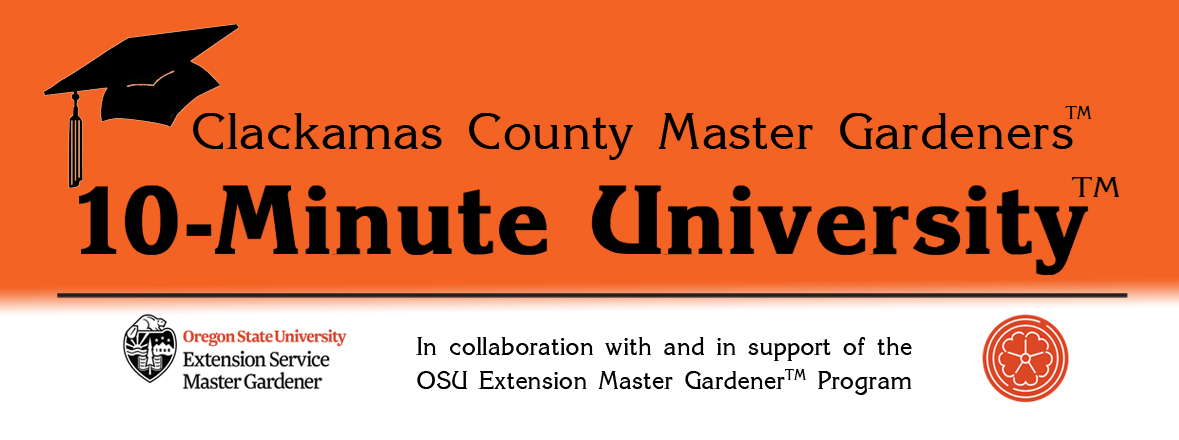Clackamas County Master Gardeners offer the 10-Minute University, a series of free online classes covering a host of different gardening topics.
All classes require advance registration. Those who are interested but can’t attend live are encouraged to register anyway, and view the recording later. It will be sent to all registrants two days after the class takes place.
All sessions are good for one metro area Master Gardener continuing garden education credit hour.
Growing Early-Season Vegetables — Wednesday, February 28, noon–1 p.m.
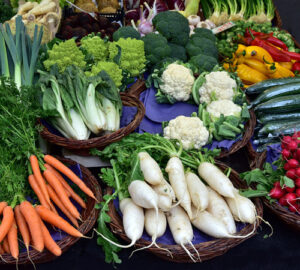 Learn to grow and enjoy many early-season vegetable varieties before warm weather crops are ready for planting. Master Gardeners Jane Collier and Sherry Sheng will focus on what can be grown in early spring when temperatures are cooler. They will discuss soil preparation, planting techniques and seed selection. They will place special emphasis on adaptations to meet the challenges of cooler air and soil temperatures, gardens pests, and potential weather events such as prolong rainy seasons and earlier warm spells.
Learn to grow and enjoy many early-season vegetable varieties before warm weather crops are ready for planting. Master Gardeners Jane Collier and Sherry Sheng will focus on what can be grown in early spring when temperatures are cooler. They will discuss soil preparation, planting techniques and seed selection. They will place special emphasis on adaptations to meet the challenges of cooler air and soil temperatures, gardens pests, and potential weather events such as prolong rainy seasons and earlier warm spells.
Garden Design 101 — Wednesday, March 6, noon–1 p.m.
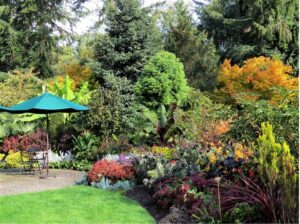 Landscaping should complement the home. This class will cover basic design principles to help create a landscape to add curb appeal. This will include the components of a good master plan and tips for how to create one. Whether changing a planting bed or redoing a larger area, this session will provide inspiration and the tools to begin a project plan.
Landscaping should complement the home. This class will cover basic design principles to help create a landscape to add curb appeal. This will include the components of a good master plan and tips for how to create one. Whether changing a planting bed or redoing a larger area, this session will provide inspiration and the tools to begin a project plan.
Class speaker Laura Eyer is an Oregon State University Extension Master Gardener™ who teaches for the award-winning 10-Minute University™ Program. She designs gardens for clients, and gardens at home, as well as on neighbors’ properties occasionally.
Using Rain Gardens and Bioswales to Harvest Water — Thursday, March 7, noon–1 p.m.
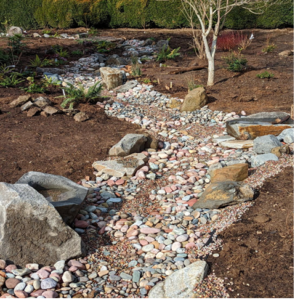 Rain Gardens allow water to seep through soils and into the ground rather than losing it to storm drains. Bioswales slow water flow and cleanse runoff. Both help restore the natural water cycle in developed areas where pavement and hard surfaces route rainfall directly into streams or sewers.
Rain Gardens allow water to seep through soils and into the ground rather than losing it to storm drains. Bioswales slow water flow and cleanse runoff. Both help restore the natural water cycle in developed areas where pavement and hard surfaces route rainfall directly into streams or sewers.
This class will explain the difference between a rain garden and a bioswale. It will begin with how to evaluate the site slope, examine soil, and observe the movement of water throughout the property. This will clarify whether a bioswale or rain garden is a good match for your site. Then we will show, step-by-step, how to make them.
Class speaker Cheryl Borden is an Oregon State University Extension Master Gardener™ who teaches for the award-winning 10-Minute University Program. Cheryl retired from decades of teaching children to become a garden educator for adults. Cheryl gardens at home and manages the Pollinator Garden at Mary S. Young State Park.
Ten Proven Ideas for a Bee-Friendly Garden — Wednesday, March 13, noon–1 p.m.
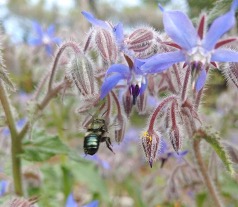 Mason bees and leafcutter bees are solitary, non-aggressive, don’t sting, and quietly go about their business as prolific pollinators for fruit trees and vegetables. They require very little to make them happy, and they are active at different times of the year. This class will explain how to host both mason and leafcutter bees. Topics will include:
Mason bees and leafcutter bees are solitary, non-aggressive, don’t sting, and quietly go about their business as prolific pollinators for fruit trees and vegetables. They require very little to make them happy, and they are active at different times of the year. This class will explain how to host both mason and leafcutter bees. Topics will include:
- How and when to set out mason bees in the spring and leafcutter bees in the summer
- The environmental conditions for healthy bees
- Storing the cocoons
- How to clean cocoons and store them safely.
The class will also explore ways to encourage the many species of native, ground-nesting bees that are an important part of a healthy habitat. Approximately 70% of native bees nest underground, including the beloved bumble bees (Bombus sp.). A few simple steps can provide a garden where many species of bees can thrive.
Class speaker Leah Puhlman is an Oregon State University Extension Master Gardener who teaches for the award-winning 10-Minute University™ Program. Leah has years of experience working with mason bees, hosting them in her own garden and elsewhere. Her mason bee “herd” in 2022 numbered around 20,000!
Soil and Planting — Thursday, March 14, noon–1 p.m.
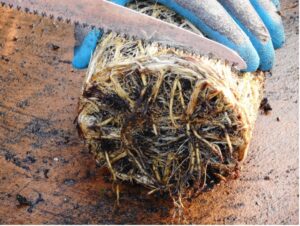 In recent years research has shown that alternatives to “common sense” traditions for planting trees, shrubs, potted flowers and vegetable starts results in quicker growth and healthier plants. This class will share current “best practices” based on recent horticultural research. It begins with tips on when to plant and when to wait, how and whether to amend the soil, special considerations for “clay” soil (and non-clay soils that act like clay). The class will cover how to prepare the plant, how deep and wide to dig the hole, and post-planting care like mulching, staking, watering, fertilizing, and pruning.
In recent years research has shown that alternatives to “common sense” traditions for planting trees, shrubs, potted flowers and vegetable starts results in quicker growth and healthier plants. This class will share current “best practices” based on recent horticultural research. It begins with tips on when to plant and when to wait, how and whether to amend the soil, special considerations for “clay” soil (and non-clay soils that act like clay). The class will cover how to prepare the plant, how deep and wide to dig the hole, and post-planting care like mulching, staking, watering, fertilizing, and pruning.
Class speaker Sherry Sheng is an Oregon State University Extension Master Gardener who teaches for the award-winning 10-Minute University™ Program. She gardens at home and in a community garden.
Integrated Pest Management — Wednesday, March 20, noon–1 p.m.
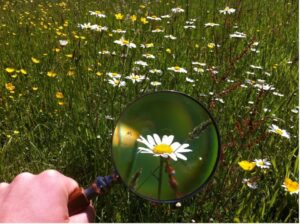 Integrated pest management, aka IPM, is THE science-based approach to managing pests economically while minimizing damage to the environment and to human health. It’s the gold standard for how to think before taking actions for pest control. Whether you have a pressing pest problem and want to reduce the damage, or simply want to learn about long-term prevention strategies, this session will help.
Integrated pest management, aka IPM, is THE science-based approach to managing pests economically while minimizing damage to the environment and to human health. It’s the gold standard for how to think before taking actions for pest control. Whether you have a pressing pest problem and want to reduce the damage, or simply want to learn about long-term prevention strategies, this session will help.
The class will cover the five components of an IPM program, beginning with resources for identifying pests, followed by tips for monitoring pest numbers and ways to set a threshold for acceptable damage, and conclude with a thorough exploration of options for pest control, ranging from the least to most toxic.
Class speakers Cheryl Borden and Jane Collier are Oregon State University Master Gardeners who teach for the award-winning 10-Minute University™. Both are active in staffing the Master Gardener helpline which provides gardening advice to thousands of home gardeners each year.
Climate Friendly Lawns — Thursday, March 27, noon–1 p.m.
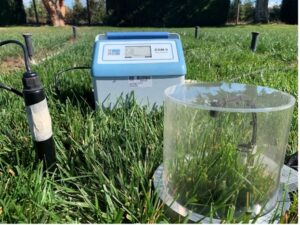 It has become fashionable to condemn lawns as wasteful and damaging to the environment. In fact, however, all plants have the potential to capture carbon from the atmosphere through photosynthesis, and the lawn’s long growing season means that it has real potential for pulling carbon from the air into grass blades and root systems.
It has become fashionable to condemn lawns as wasteful and damaging to the environment. In fact, however, all plants have the potential to capture carbon from the atmosphere through photosynthesis, and the lawn’s long growing season means that it has real potential for pulling carbon from the air into grass blades and root systems.
So, how to maximize a lawn’s potential for carbon sequestration?
OSU’s Turf Management Program researchers are studying how to make lawns more climate friendly. This session will review what types of lawns are most eco-friendly, and how best to mow, fertilize, and irrigate for both healthy plants and maximum carbon sequestration. It will also discuss which cultural practices to avoid because they encourage soil microbes to break down organic matter, thus releasing carbon back into the atmosphere.
Alec Kowalewski, Ph.D., has over 20 years of research experience and multiple publications on various turfgrass species obtained while employed at Michigan State University, Abraham Baldwin Agricultural College, the University of Georgia, and Oregon State University. Alec is an Associate Professor at Oregon State University. He teaches classes in the Department of Horticulture and provides Extension material for stakeholders in turfgrass and landscape management. His primary research interest is improving the economic and environmental sustainability of turfgrass.
Growing Tomatoes, Part II — Thursday, March 28
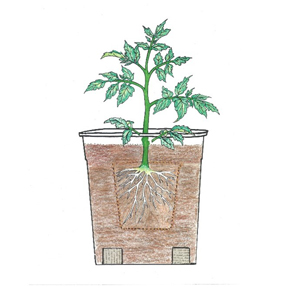 This class is the second of a series, each perfectly timed for what you need to know. The first session (February 21) focused on how to choose among thousands of varieties and how to start them from seeds.
This class is the second of a series, each perfectly timed for what you need to know. The first session (February 21) focused on how to choose among thousands of varieties and how to start them from seeds.
This session will cover:
- How to care for seedlings
- How to ‘pot up’ seedlings (a secret of tomato masters)
- How to choose a good tomato start at the nursery
- Which tomatoes are recommended for cool vs hot climates
- When to plant the tomato start in the garden
- Balcony or backyard: What techniques are good for growing success
- What structures can protect the plant and extend the growing season
- How to support a large tomato plant
- What are good “companion” plants and plants to avoid near your tomatoes
- Why it is important to rotate your crops, especially tomatoes
Class speaker Amelia Wilbur is an Oregon State University Extension Master Gardener. She teaches for the award-winning 10-Minute University™ Program. She and her husband previously co-owned a tomato grafting business. They grow a wide variety of vegetables and fruiting plants on their 3.5-acre home garden and annually harvest more than 500 pounds of tomatoes.
Growing Tomatoes, Part III will take place on Monday, April 15. That class will cover planting out into the garden or container, supporting plants of various sizes, cultural practices (watering, fertilizing, pruning, etc.), and disease management.

